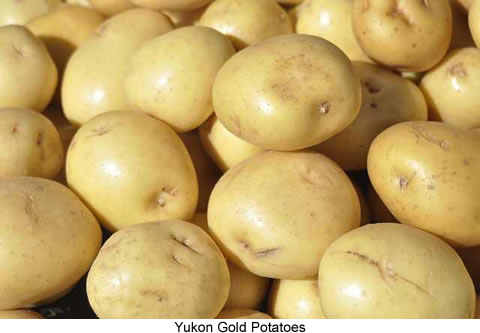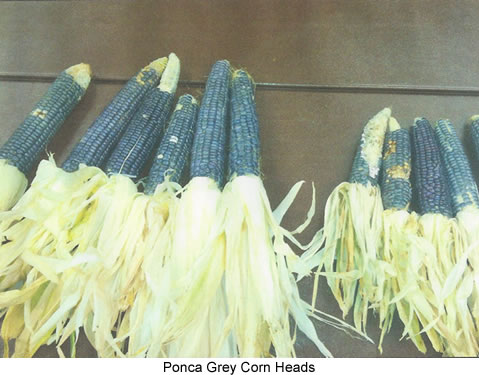 |
Canku Ota
|
 |
|
(Many Paths)
|
||
|
An Online Newsletter
Celebrating Native America
|
||
|
January 2014 - Volume
12 Number 1
|
||
|
|
||
|
Reclaiming Our Knowledge
of Indigenous Food Cultivation
|
||
|
by Electa Hare-RedCorn
- Osage News
|
||
|
Feel good time. Most of my knowledge comes from a natural sense of curiosity and an effort to find the good in local offerings. Gardening is a livelihood we can learn from our elders, our neighbors, literature, the local county extension office, our Osage Historic Preservation office, hands on learning at the cultural center, YouTube videos, etcetera. When it comes to getting one's hands dirty and growing our own crops I believe we should express ourselves and not repress ourselves. I credit Deb EchoHawk of the Pawnee Nation for getting me excited about the correlation of food and mood in the growing and storing process.
I feel it is our responsibility to teach our younger generation to respect where their food comes from and how much work goes into its cultivation. When I refer to ongoing learning experience, I mean we as a family move from ignorance to knowledge. We live in a culture of extremely high rates of obesity and diabetes for children, elders, young adults and tribes. In Osage County, we rank 56 of 77 counties in terms of fruit and vegetable consumption. Osage County ranks 48th for Obesity. Heart Disease is the number one killer of our County Citizens. Our hope as a family is that we can keep active, healthy, and engage our mind and spirit in the growing process. I do not like to make the assumption that we know it all. What we do know is that food prices are high, quality of products is not always reliable in our food desert atmosphere, and there are all sorts of dangerous chemicals and pesticides in store-bought produce. I feel more and more responsible for the nutrition my children take in as I wean them of Ba.Ze.Nee (Milk) so I hope to become part of the change towards a nutritious and accessible food system.
My Auntie Dorna recently told me a little about Pawnee history, as we as Pawnee people moved down from our Nebraska homelands along the Platte, Loup, and Republic River in three groups, in the years of 1873, 1874, 1875. When the Pawnees arrived in Indian Territory we were comforted by the fact that we could find persimmon and sand plums along the Cimarron and Arkansas Rivers. When our Osage and Pawnee children are older – I want them to recall a good relationship with food and nutrition. I hope others join me as we strive to eat better, move more, and be commercial tobacco free. |
|
|
||
|
|
||
| Canku Ota is a free Newsletter celebrating Native America, its traditions and accomplishments . We do not provide subscriber or visitor names to anyone. Some articles presented in Canku Ota may contain copyright material. We have received appropriate permissions for republishing any articles. Material appearing here is distributed without profit or monetary gain to those who have expressed an interest. This is in accordance with Title 17 U.S.C. Section 107. | ||
|
Canku Ota is a copyright ©
2000 - 2013 of Vicki Williams Barry and Paul Barry.
|
||
 |
 |
|
|
The "Canku
Ota - A Newsletter Celebrating Native America" web site and
its design is the
|
||
|
Copyright ©
1999 - 2013 of Paul C. Barry.
|
||
|
All Rights Reserved.
|
||
 I
am a mother of two children living in Indian Camp, Pawhuska, Okla.
In the past year I can report that our small family garden has produced
some delicious Yukon Gold Potatoes, cherry tomatoes, lettuce, snap
beans, and one pumpkin. In my work environment my boss has graciously
allowed me to grow Sweet Potatoes and experiment with Stevia, a
plant that contains natural sweeteners that are used in foods. The
squash blossoms sprouts were destined for greatness with the generous
supply of rain we were blessed with this summer. The squash must
have been playing tricks, because on Midnight near the last day
of September, it turned into a pumpkin the size of my three-year-old's
head. It makes me feel good when my daughter sees a raised bed garden
on her playground and tells her teacher, "My I.Na (Mom) grows
a garden."
I
am a mother of two children living in Indian Camp, Pawhuska, Okla.
In the past year I can report that our small family garden has produced
some delicious Yukon Gold Potatoes, cherry tomatoes, lettuce, snap
beans, and one pumpkin. In my work environment my boss has graciously
allowed me to grow Sweet Potatoes and experiment with Stevia, a
plant that contains natural sweeteners that are used in foods. The
squash blossoms sprouts were destined for greatness with the generous
supply of rain we were blessed with this summer. The squash must
have been playing tricks, because on Midnight near the last day
of September, it turned into a pumpkin the size of my three-year-old's
head. It makes me feel good when my daughter sees a raised bed garden
on her playground and tells her teacher, "My I.Na (Mom) grows
a garden." Planting
a garden is an ongoing learning experience where I feel we as Indigenous
people can reclaim our cultural knowledge. In my earlier years I
felt too busy to care about where the food I consumed came from
or anything about the growing process. My grower's awakening arose
in May/June of 2012 to apply for an internship with the Pawnee Seed
Preservation project in Kearney, Neb. For one month, I helped tend
Ponca Grey Corn and Pawnee Spotted Like a Horse Beans. The month
also happened to occur during last summer's drought. The 18-year-old
young woman I mentored, and myself, tenaciously assisted a master
gardener's efforts to pollenate the corn and harvest the beans for
drying and seed preservation. The hands on responsibility made all
the difference for me.
Planting
a garden is an ongoing learning experience where I feel we as Indigenous
people can reclaim our cultural knowledge. In my earlier years I
felt too busy to care about where the food I consumed came from
or anything about the growing process. My grower's awakening arose
in May/June of 2012 to apply for an internship with the Pawnee Seed
Preservation project in Kearney, Neb. For one month, I helped tend
Ponca Grey Corn and Pawnee Spotted Like a Horse Beans. The month
also happened to occur during last summer's drought. The 18-year-old
young woman I mentored, and myself, tenaciously assisted a master
gardener's efforts to pollenate the corn and harvest the beans for
drying and seed preservation. The hands on responsibility made all
the difference for me.